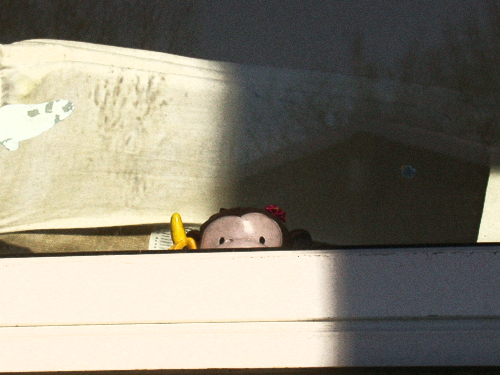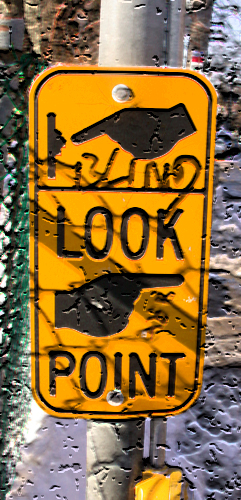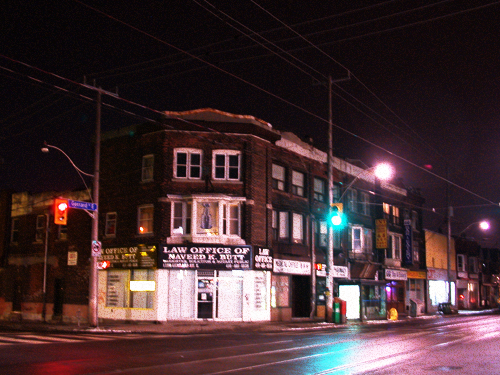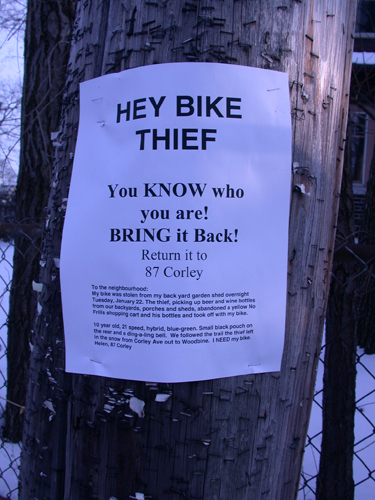I’ll admit that McCarthy is no word-mincer; he lets nothing stand in the way of his narrative. Even when I realized that the light at the end of No Country ‘s long dark tunnel was that of an oncoming train, I couldn’t put the darned book down. Make no mistake, as the majority of the critics will tell you, No Country is a bare-boned, shoot-from-the-hip page-turner.
They will also tell you that it’s a classic God vs. Satan, Good vs. Evil struggle. Problem is, No Country contains no aspects of God or Good, and if there is a semblance of either, the struggle is about as lopsided as a wrestling match between Nelle Carter and the kid from Webster. An example of the insubstantial “foils” in No Country is Sheriff Ed Tom Bell. The book is peppered with his short, first-person commentaries, which at first seem an appropriate way to break the pace of the main narrative and provide back story. They are quaint and evoke Ed Tom Bell’s wise-old-man-of-the-hills character. However by the last ten pages of the novel I found myself muttering under my breath that Sheriff Tom Bell should quit reminiscing about the old days and actually do his job. In the end, of course, the story leaves him where it finds him: old, crusty and defeated.
There are two other characters which McCarthy sets up as possible foils for the relentless antagonist, Anton Chigurh, but the “struggles” which ensue are for the most part non-existent. All-in-all, rather than a God vs. Satan storyline which the critics are claiming, we simply have a series of well-paced anecdotes starring the Devil, who strides through the novel virtually unopposed. In fact, Anton Chigurh faces such little resistance, that after the climax of the book he even kills off an inconsequential, secondary character. While some might say that this emphasizes the malevolence of the Anton Chigurh, I believe this demonstrates that McCarthy, like a child who has scared the other kids from the sandbox, has run out of plausible things to do with his character.
But this is reality, is how my many friends have responded my criticism about the book. Well, No Country for Old Men isn’t reality, it’s fiction. And when reading fiction we allow a suspension of disbelief to make room for such things as possible impossibilities and to entertain the idea that a man like Anton Chigurh, who walks around flipping quarters and waxing philosophy before killing his victims with a cattle gun, can exist. On the surface, Anton is as
We don’t always need a good guy, is another response I’ve heard from my friends. If that’s the case, then the antagonist or anti-hero should be a compelling character. Turns out, Anton Chigurh is as compelling as Arnold Schwarzenegger’s Terminator robot from the original movie, minus the robot bit. He is, as one critic claims “soulless”. In other words, there is nothing in him, no conflict or depth with which the reader can engage. With his quarters and philosophy, Anton has the potential for complexity but in the end, he is a tool to spur the plot along, a blunt malevolent force to be reckoned with. Except in the case of No Country, there is no reckoning.
What’s it going to be, then? A grim, realistic social commentary, or a gritty modern-day western? Philosophical quarters or cattle guns? This is where Cormac undoes himself, by trying to walk the impossible line between solemn reality and entertainment value. What he ends up with are the uninteresting aspects of either side: bland evil and uninspiring good.
But this is Cormac’s point, I believe; his perspective on the world today. And looking at the reviews for No Country for Old Men it seems that many either share that perspective or have fallen under the misconception that anything dark and disquieting must be prophetic. Myself, I was just looking for a good novel to read, and now I find myself asking: Mr. McCarthy, I suspended my disbelief for you, why have you wasted my time?





